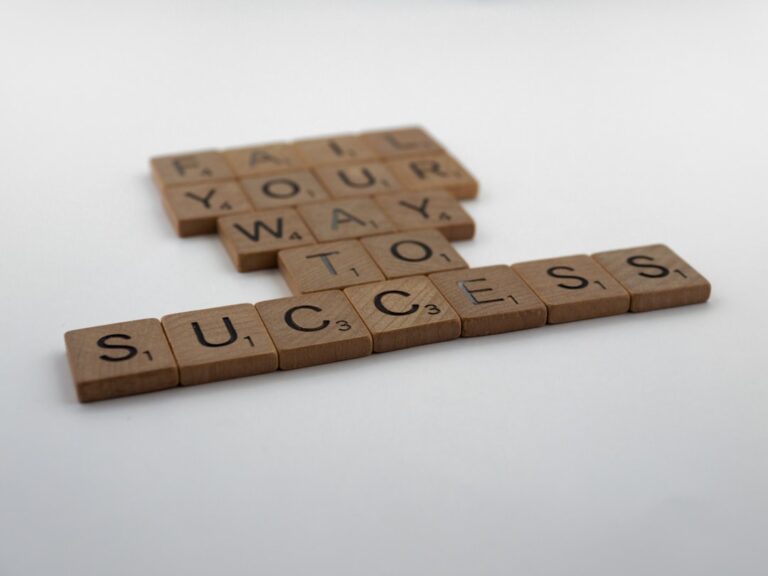
I used to think patience meant just waiting idly for things to happen. But I learned it’s a powerful strategy for building the life you truly want.
We all want results now. Whether it’s losing weight, building a business, or overcoming a bad habit, that desire for instant gratification can feel overwhelming. I know this firsthand. For years, I struggled with gaming addiction, binge eating, and just plain laziness. I wanted instant change, but real transformation took consistent, patient effort. It felt like I was constantly battling myself, always looking for a shortcut. But what I discovered wasn't a shortcut at all. It was something far more powerful: strategic patience.
What Strategic Patience Really Means
Strategic patience is not passive. It’s an active approach. It means you have a clear goal, a plan to reach it, and the discipline to execute that plan over time, even when progress feels slow or roadblocks appear. You’re not just sitting back. You’re working, learning, adapting, and trusting the process.
Think about it like this: losing over 110 pounds wasn't a sprint for me. It was a marathon of consistent choices, patiently made day after day. There were days I wanted to give up, days the scale didn't move, or even went up. But strategic patience meant I stuck to my healthy eating, kept moving, and trusted that the small, consistent actions would eventually add up. And they did.
Why Strategic Patience Is Your Secret Weapon
In a world that demands instant everything, strategic patience gives you an edge. It lets you make wise decisions instead of impulsive ones. It helps you build sustainable habits instead of chasing quick fixes that never last. It protects you from burnout because you understand that true growth takes time and effort, not frantic rushes. It empowers you to tackle huge goals that others might shy away from, simply because they don't have the patience to see them through.
My journey to strengthen my Orthodox Christian faith also taught me profound lessons about God’s perfect timing. Sometimes we pray for things and have to wait, trusting His wisdom. This kind of patience isn't about giving up control; it’s about aligning your will with a higher purpose and trusting the path God lays out. It’s an active trust.
15 Ways to Practice Strategic Patience Every Day
Here are 15 ways you can start practicing strategic patience in your own life.
- Define Your "Why." Get super clear on your ultimate goal and why it matters to you. When you know your purpose, it’s easier to stay patient through tough times. For me, overcoming my addictions and finding a healthy lifestyle was deeply tied to wanting to honor God and live a fuller life.
- Break Down Big Goals. A massive goal can feel overwhelming. Break it into smaller, manageable steps. Celebrate each step you complete. This builds momentum and shows you are making progress. Losing 110 pounds seemed impossible until I focused on one healthy meal, then one week.
- Celebrate Small Wins. Don't wait for the finish line to acknowledge your effort. Did you stick to your healthy routine for a day? That's a win. Did you work on a difficult project for an hour? That’s a win. These small celebrations fuel your motivation.
- Embrace the Process. The journey itself holds valuable lessons. Focus on learning, growing, and enjoying the ride, not just the destination. The path of becoming is just as important as the outcome.
- Set Realistic Expectations. Understand that progress is rarely linear. There will be setbacks and slow periods. Expect them, and don't let them derail you. This mindset helps you stay calm when things don't go as planned.
- Practice Detachment from Outcomes. Do your absolute best with your actions, but then release your grip on how things "should" turn out. Trust that your consistent effort will yield results in due time.
- Learn from Setbacks. View mistakes or failures not as endings, but as valuable feedback. What can you learn from this? How can you adjust your plan? This shifts your perspective from disappointment to growth.
- Create a Productive Routine. Structure brings consistency. Building my productive routine with short bursts of deep work felt slow at first. But by consistently showing up, even for 2-4 hours of focused work, I saw real progress over time.
- Limit Distractions. Our attention spans are constantly under attack. Turn off notifications, put your phone away, and create an environment that supports focused work and patient effort. This was crucial for me in overcoming gaming addiction.
- Seek Wise Counsel. Talk to people you trust who have experience in the area you’re working on. A spiritual father, a mentor, or a supportive friend can offer perspective and encouragement when your patience wanes.
- Strengthen Your Faith. For me, leaning into my Orthodox Christian faith provides a solid foundation. Trusting in God’s providence and timing helps me endure waiting periods with hope and peace, knowing His plan is perfect.
- Practice Gratitude Daily. Take time each day to acknowledge what you are thankful for. This shifts your perspective from what you lack or what hasn’t happened yet, to the blessings already present in your life.
- Take Calculated Risks. Strategic patience doesn't mean being stagnant. It means you wait for the right opportunity to act, but when it comes, you take a thoughtful, intentional step forward.
- Visualize Success (Groundedly). See yourself achieving your goals, but keep your visualization rooted in reality and the effort it will take. This helps keep your "why" alive and your motivation strong without creating unrealistic fantasies.
- Rest and Recharge. Patience requires energy. Don't push yourself to burnout. Build in time for proper rest, prayer, and relaxation. A refreshed mind and body are better equipped to practice strategic patience.
Your journey toward a better existence doesn't happen overnight. It’s built on intentional, consistent, and patient effort. It’s about understanding that the biggest transformations often unfold slowly, like a seed growing into a mighty tree.
What's one area in your life where you can start practicing strategic patience today?





